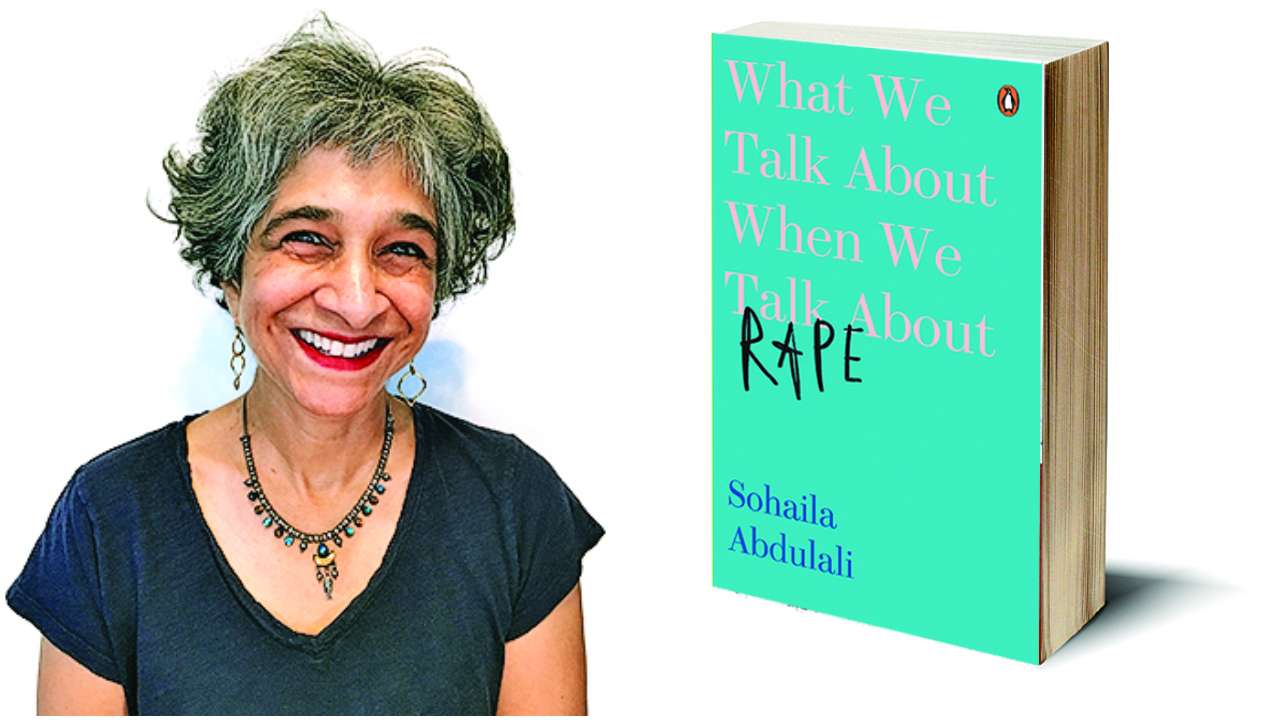
Book: What We Talk When We Talk About Rape
Author: Sohaila Abdulali
Publisher: Penguin Viking
Pages: 240
Price: Rs 499
Sohaila Abdulali was gang-raped at the age of 17 in Mumbai. This is the reality of her life – one that she took charge of and refused to allow to define who she was, and is. It never occurred to her that rape was something to be ashamed of. “I must be missing the Shame Gene that other Indian women are born with, because, for all the guilt, horror, trauma and confusion that followed my rape, it never occurred to me that I had anything to be ashamed of,” she writes in the book titled What We Talk When We Talk About Rape.
At this year’s Jaipur Literature Festival, as Abdulali sat with this writer to discuss her book, she spoke on the issue of a woman’s agency over her body, and to control, in any way, the consequences of the incident. “We have this idea that all Indian families are going to shun their daughters – many do, yes, but many don’t – there are many who would support their daughters because they love them as human beings and don’t see them as upholders of culture.”
Abdulali describes her book best: “It’s not only about what we talk about, but also what we don’t. We don’t talk enough about aggravating phobias. We don’t talk enough about rebuilding trust. We don’t talk enough about joy and rage and how to fit both into our lives.”
Yet, she is wary of fitting her book under genres; more so, she doesn’t want it to be labelled a memoir since there is so much more to it than a summarised account of a horrific night four decades ago.
In the chapter The Abdulali Guidelines For Saving a Rape Survivor’s Life, she pens suggestions from believing the victim, encouraging her to get help to not questioning her judgement. In Your Rape is Worse Than Mine, Abdulali writes about the “ridiculous” practice of ranking rape and if this is a defence mechanism of the survivor.
Our prevalent, existing conversations of rape, assault, agency and consent all lack two things – “equality and respect.” “Why are we saying that sex is pleasurable for one gender and not for the other? We are repeatedly told that the first sexual experience for young boys is supposed to be great; but painful for a girl. No wonder we cannot differentiate between pleasure and rape most of the time.”
This, she asserts, will change with education alone. “We talk to our kids about genocide, caste and communal violence, bikini waxes, then why not rape? We must talk about rape, and we must talk about how we talk about rape.”